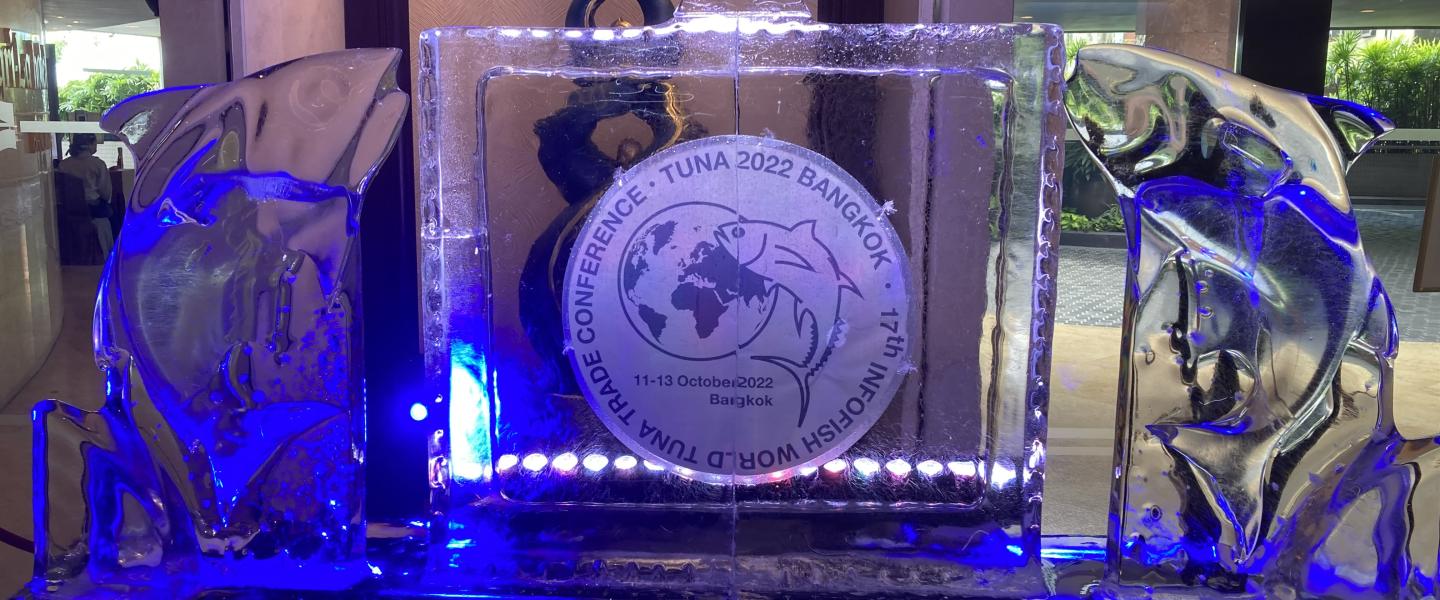The InfoFish World Tuna Conference closed today, rounding off three days of interesting presentations, discussions, and debates.
The final day of the conference included a focus on social accountability. There was wide recognition that retailers and consumers demand more accountability from the fisheries sector beyond the usual environmental sustainability. Existing certifications and standards do not go far enough. As Iain Pollard from Key Traceability said, “just being MSC certified is not enough”. Issues such as climate impact, carbon footprint, and human rights are becoming just as important as environmental sustainability.
Bubba Cook, WWF Tuna Programme Manager, spoke about how the finance and insurance sectors were becoming increasingly concerned with the social accountability and human rights impacts of what it funds. Without the backing of finance and insurance, many fishing companies will find it impossible to operate.
The fact that consumers, retailers, and financiers are calling for human rights to be considered in the fishing sector is significant. This sentiment alone is a cause for celebration for Human Rights at Sea. For 8 years, we have worked tirelessly to raise awareness of the issue of human rights at sea. It is heartening to see stakeholders in the fishing industry recognise that human rights within the sector are a key concern.
But awareness is not enough. Change has to be achieved.
We have to find ways to end human rights abuses in the fisheries sector. Martin Purves described his time as a fisheries observer and witnessing fishers jump ship in the South Atlantic in an attempt to flee. The fact that they were jumping to their certain death tells you all you need to know about the conditions they were fleeing from.
All humans have the same rights; the right to a safe working environment, the right to a fair wage, freedom from discrimination, freedom from slavery, and the right to justice when these rights are abused. Just because fishers work at sea does not mean they are not worthy of the same protections as everyone else.
Some states and fishing companies are doing good work and take their obligations seriously. The conference heard from the Fishing Industry Association of Papua New Guinea about how they have integrated human rights into their operations, including by explicitly reflecting the Geneva Declaration on Human Rights at Sea
But there are many states and companies that do not take their obligations seriously. The clear message from the conference speakers is that those who don’t take their obligations seriously need to start because the weight of the consumer and the finance industry is firmly behind the notion that human rights apply at sea as they do on land. Business as usual is no longer acceptable.
Bubba Cook perhaps summed it up best when he asked the conference to ask themselves, “which side of history do I want to be on”.
Contact: If you have any questions, please write to us at enquiries@humanrightsatsea.org
About Sharing. We welcome the use and dissemination of our work with proper accreditation. Please ensure that our Terms of Use are conformed with at all times.
